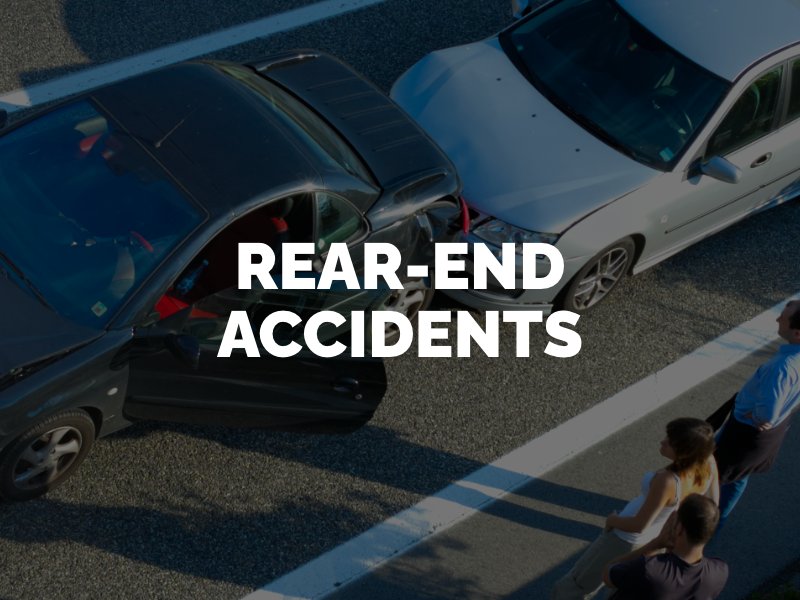Rear-End Car Accidents
Getting into a rear-end car accident in Los Angeles can be a frightening and chaotic experience. You may not know how to seek fair financial compensation for your losses so that you can move forward. To achieve a positive case outcome against an at-fault party – and make sure you have everything you need during the claims process – it can benefit you to hire an experienced car accident attorney in Los Angeles.

What Is a Rear-End Car Accident?
A rear-end car accident describes a motor vehicle collision between two cars where the front of one vehicle crashes into the back of the car it is following. A rear-end collision is one of the most common types of car accidents in Los Angeles, especially in areas with heavy traffic, such as the 405. In bumper-to-bumper traffic congestion, a driver is more likely to crash into the back of the car he or she is following – especially if that driver is following too closely or distracted.
Common Causes of Rear-End Accidents in California
Negligence is behind most rear-end collisions reported in California. Negligence means a failure to act with proper care, such as a motor vehicle driver violating a traffic law or failing to pay attention to the road.
Common driver errors that cause rear-end collisions are:
- Tailgating or following another vehicle too closely
- Reckless or aggressive driving
- Speeding
- Making unsafe lane changes too close to other vehicles
- Distracted driving
- Texting and driving
- Drowsy driving or falling asleep behind the wheel
- Driving while impaired by drugs or alcohol
- Intentionally slamming on the brakes to make a point (brake-checking)
- Driving with broken brake lights or taillights
The cause of your rear-end car accident will need to be determined before you can file a car insurance claim, as California is a fault-based insurance state. Once the cause of the crash is identified, you can file a claim with the insurance provider of the at-fault driver or party.
Who Is Liable for a Rear-End Collision in California?
California law allows injured car accident victims to file claims for financial compensation with the car insurance companies of at-fault drivers. Under this fault-based insurance system, an injured crash victim must determine and prove fault to qualify for insurance benefits.
California law (Vehicle Code § 21703) requires all drivers not to “follow another vehicle more closely than is reasonable and prudent, having due regard for the speed of such vehicle and the traffic upon, and the condition of, the roadway.”
The rear driver is most often found to be at fault for a rear-end car accident for torts such as following too closely or not paying attention to the road. However, it is also possible for the front driver to bear liability; for instance, if that driver brake-checked or cut off the rear driver.
What Is the Average Rear-End Car Accident Settlement in California?
The value of a car accident insurance settlement depends on the unique factors involved, such as the severity of the claimant’s injuries, the costs of required medical care and the value of property damage.
There are too many variables to calculate an “average” rear-end collision settlement. Instead, you should consult with a personal injury lawyer in Los Angeles who can review your particular case to give you an accurate estimate of how much it may be worth.
How Can a Car Accident Lawyer Help You Recover?
Holding another driver or a third party responsible for your rear-end car accident in California may require assistance from an attorney. A car accident lawyer can investigate your crash, determine fault and take over claim negotiations with an insurer on your behalf. Your lawyer will aggressively pursue the financial compensation you deserve, even if this requires a court trial.
If you were recently involved in a rear-end collision in Los Angeles, contact Rose, Klein & Marias, LLP for a free consultation with a knowledgeable attorney. We will review your car accident case and explain your rights and recovery options.
